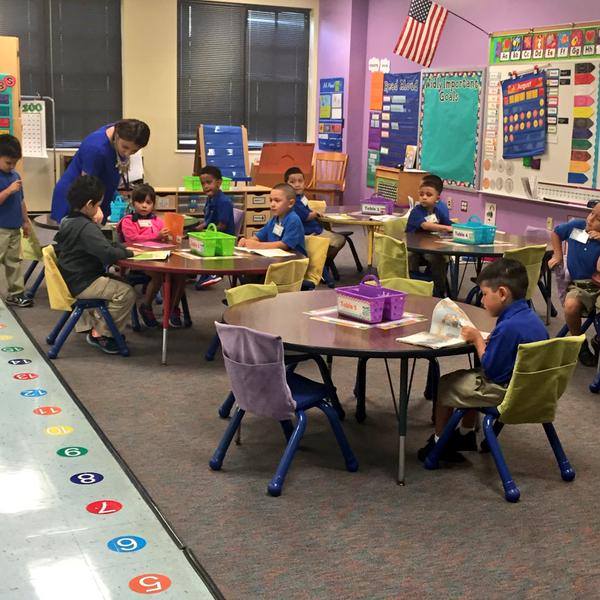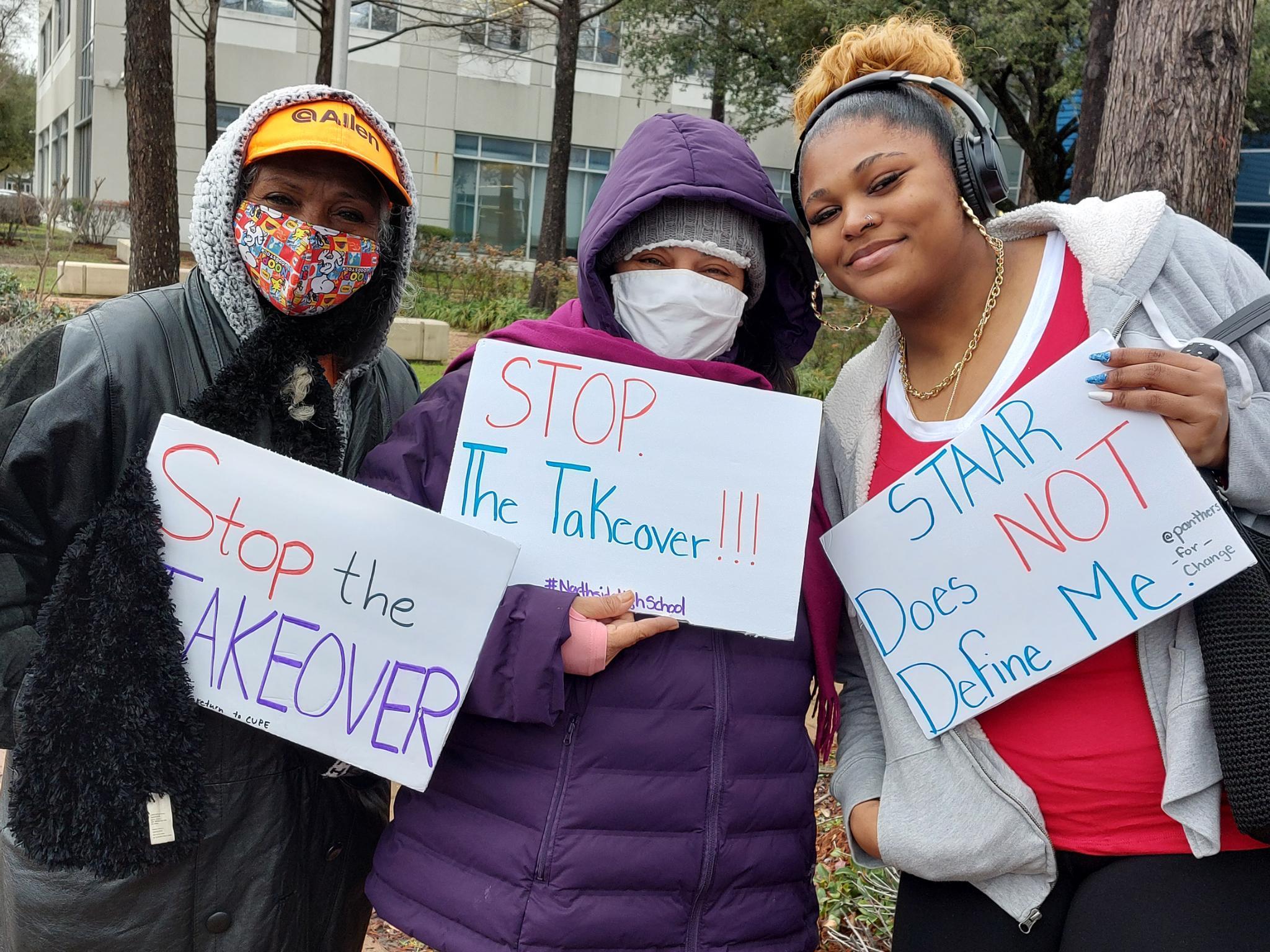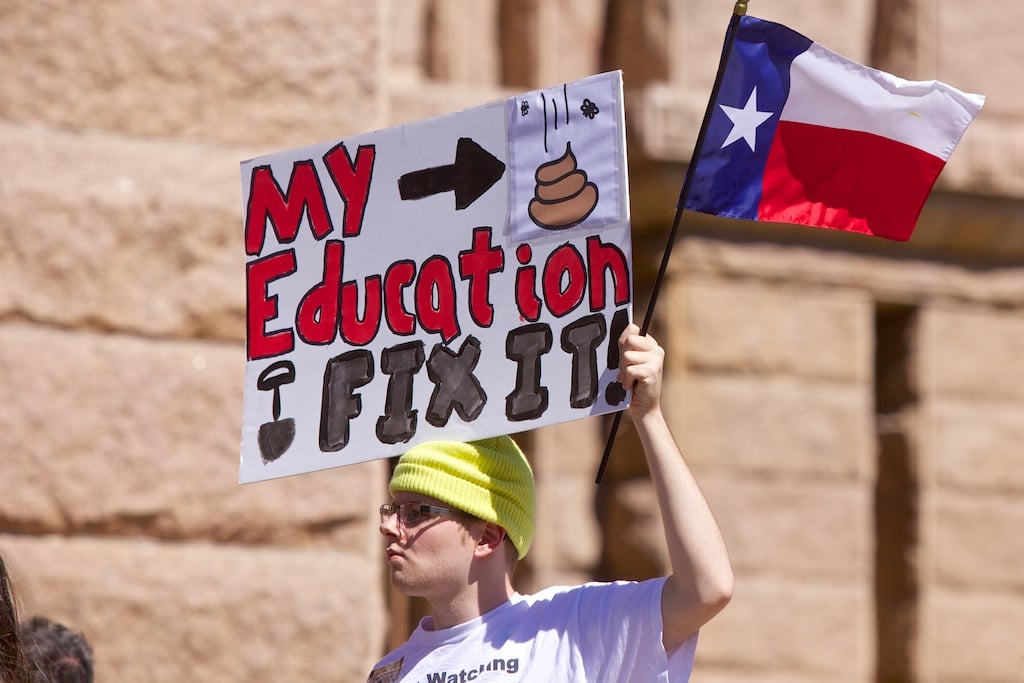
Houston Schools Ban Suspensions in Early Grades

Above: Thanks to some newly elected school board members in Houston, the district has ended its policy of allowing suspensions for kids in second grade and younger.
Late last year, the Houston Independent School District looked poised to become the first big school system in Texas to ban suspensions for second-graders and younger. Community groups and child advocates supported the change, inspired by research suggesting that suspending students so young was not only ineffective, but perpetuated racial inequity in the school system. And the proposal came directly from school administrators, who had already planned out how they’d implement the change and train teachers in alternatives to suspension. It looked like Houston was on the brink of a milestone in discipline reform.
And then, in mid-November, the school board balked. While acknowledging that research and issues of racial equity favored the ban, trustees said they preferred to let principals run their schools as they see fit.
“This is what I’m hearing from my principals,” said trustee Paula Harris, who voted against the ban, “I have one child in a classroom, and maybe back in the days that James H. Law (Elementary) with Ms. Frances, a good paddle would have got him to settle down, but we don’t do that anymore, but now I can’t even send you home.”
Trustee Harvin Moore said that he heard the criticisms, but his answer was still no. “Probably too much use of suspension, possibly far too much, definitely discriminatory in some places, but I don’t want to take that tool away,” Moore explained.
Two months later, though, it’s a different story. By January a few new members joined the board, including Jolanda Jones, who took over Harris’ seat. The new board took a first step toward approving the suspension ban last month, in its first meeting. Last night they made it official, with a 6-3 vote to ban suspensions for young students, except in cases where state law requires it. Those “statutory” violations include acts of violence or bringing a weapon to school. For the rest of the “discretionary” violations — the ones that, according to research, are disproportionately visited upon black students, disabled students and boys — schools will have to take another approach to punishment.
Though black students accounted for 12 percent of the students in Texas in 2013-14, they were given 46 percent of discretionary suspensions, according to the nonprofit Texas Appleseed. In Houston ISD, the state’s largest district, the decision will make a big impact. School officials told the Houston Chronicle that 1,420 pre-K through second-grade students got out-of-school suspension last year. And as the Chronicle reported, some schools saw a much larger share of those suspensions.
At one campus, Hilliard Elementary in the North Forest area, 71 students in pre-K through second grade – roughly one out of five – were suspended at least once last year. About 10 percent of HISD’s elementary schools suspended 20 or more of their youngest students at least once.
Thursday night was also Superintendent Terry Grier’s last meeting before stepping down after six years. Grier treated himself to an early exit from the meeting, which ran late into the night, in which the new board also voted to rename three more schools — Albert Sidney Johnston Middle School, Sidney Lanier Middle School and Jefferson Davis High School — ideally in favor of individuals who had not served the Confederacy. The Chronicle reported that the vote was narrowly decided by the board’s five-member non-white majority; trustees voting no complained that the changes would be too expensive — around $2 million to change the names of those three and five others named for Confederate figures.
“I’ll take dignity over dollars,” trustee Rhonda Skillern-Jones said last night.


